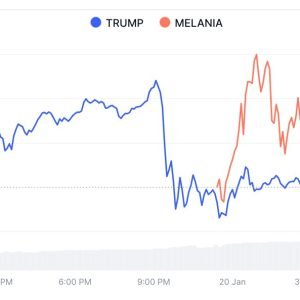
Cebu’s vision to become a premier technology hub, often referencing Silicon Valley, is closely tied to the province’s ability to secure a reliable, affordable, and abundant energy supply. To meet its high-tech goals, Cebu must further strengthen its power infrastructure, ensuring it can support the demands of a growing technology sector and broader economic development.
Mandaue Chamber of Commerce and Industry (MCCI) President Marc Ynoc emphasized that a dependable energy supply is foundational for any tech-driven economy. As energy-intensive industries like AI technologies and data centers become increasingly central to economic growth, a robust and responsive electrical grid is more pressing than ever.
“Electricity costs play a crucial role in attracting venture capital and foreign investments,” Ynoc noted. For Cebu to remain competitive globally, it must offer energy at rates that appeal to international investors. In the manufacturing sector, for instance, electricity can account for up to 40% of total operational costs. With the Philippines having some of the highest electricity rates in Southeast Asia, Cebu faces stiff competition from neighboring countries like Indonesia, Malaysia, Vietnam, and Thailand, which are more cost-effective alternatives for multinational companies relocating from China.
A broader strategic imperative
Business leader Steven Liu highlighted the importance of addressing Cebu’s energy challenges to attract new investments. While ongoing projects to expand both baseload and renewable energy capacity, particularly through solar, are promising, Liu suggested that these efforts may need to be part of a broader strategy. He advocated for more involvement from the private sector in load-sharing initiatives and stronger incentives for energy conservation. Additionally, Liu recommended the widespread adoption of energy-efficient technologies, such as inverters and LED lighting, to help ease demand pressures.
Looking ahead, Liu stressed the need for continued investment in new baseload power plants to meet Cebu’s medium-term energy needs. Given the local economy’s reliance on sectors like Business Process Outsourcing (BPO), manufacturing, and tourism, ensuring a stable and sufficient power supply is essential for the region’s sustained growth and economic resilience.
Acting Cebu City Mayor Alvin Garcia expressed optimism about Cebu’s immediate electricity shortage, but he acknowledged the importance of proactive measures to secure the city’s energy future. “We must encourage private sector investments in power generation, particularly from companies already operating in Cebu. Expanding their capacity to meet growing demand is crucial,” Garcia stated.
The Department of Energy (DOE) projects that Cebu Province’s energy demand will surge to approximately 1,400 MW within the next two years. Without the construction of new baseload power plants, this demand could outpace supply by 2027, leading to potential energy shortages. The Visayas region, which includes Cebu, currently has a generating capacity of 2,454 MW against a peak demand of 2,153 MW, leaving a slim reserve margin of just 239 MW.
Cebu Province accounts for half of the Visayas region’s total energy demand, with Metro Cebu contributing over 500 MW—a reflection of the region’s rapid economic expansion. Central Visayas, which includes Cebu, is the fastest-growing regional economy in the Philippines, recording a 7.3% growth rate in 2023 and reaching an estimated P1.38 trillion in economic output.
This rapid growth has attracted multinational companies to Cebu, particularly in the high-value Knowledge Process Outsourcing (KPO) sector, drawn by the region’s rich talent pool of engineers, data analysts, and other highly skilled professionals. However, Cebu’s ability to sustain and expand this growth will depend heavily on its infrastructure, particularly a reliable and sufficient power supply.
Cebu’s aspiration to become a leading global tech hub is within reach, but it is contingent upon securing its energy future. A stable and reliable power supply is not just a logistical necessity—it is a strategic imperative that will ensure Cebu can fulfill its potential as a center of innovation and economic prosperity.






